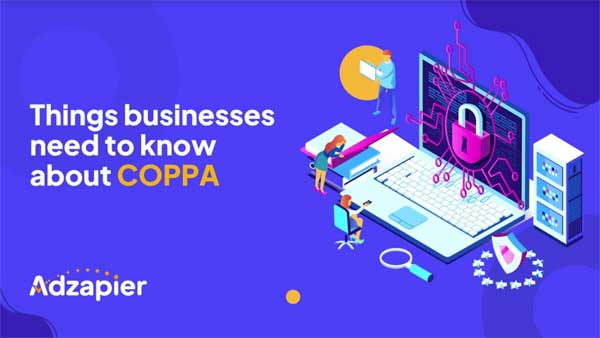Things Businesses Need to Know About COPPA
By Space Coast Daily // December 13, 2022

Just as data privacy and data protection discussions are gaining ever greater traction in our greatly connected world, the topic of children’s data privacy is something that we must pay particular attention to.
COPPA or the Children’s Online Privacy Protection Act of 1998 was one of the first laws enacted to protect the online privacy of children and provide for penalties and fines if the businesses and websites so happened to violate the guidelines on single or multiple occasions.
But what exactly is the Children’s Online Privacy Protection Act, and what do businesses need to know about the same so that they can ensure compliance? Well, let’s take a look.
COPPA: An overview.
The COPPA is a federal law that was passed by the US government in 1998, and this was not only one of the first laws that protected children’s online privacy but proved to be one of the pioneering data privacy laws as well.
The act was designed to protect the privacy of children aged 13 and below, and this required the parents to consent to the data collection that the websites intended to do. Without the express consent of the parents, businesses, and other commercial entities, in no manner whatsoever, can track or process the data of children.
When it comes to the scope of the COPPA, it applies to businesses, websites, apps, etc. that are operating under the US jurisdiction, have hosted their services on US servers, and are headquartered in the USA as well. Schools and other local government bodies do not fall under the ambit of the COPPA, as the law treats them as government entities, thereby exempting them from the otherwise stringent requirements.
The Children Online Privacy Protection Act is enforced by the FTC or the Federal Trade Commission, and they are the ones who regulate this act daily as well. The law allows for punitive measures and penalties as well to the tune of $40,654 per offense.
Since these websites handle the data sets of a wide range of clients, the total fine amounts can reach astronomical levels, while being bad for business as well. Therefore, businesses and websites must comply with the COPPA at all costs.
But how can a business go about doing the same? For one, several page optimization measures can be taken, while there are several tools and services available as well that can help do just that. We’d be taking a look at these optimization measures, and how the tools can play a major role in ensuring COPPA compliance.
How to comply with the COPPA?
For businesses to operate effectively and efficiently within the USA, complying with the COPPA is not an option, and according to the FTC, these are some of the methods that websites, apps, and other commercial entities can avail of to make their platforms, COPPA compliant.
■ The websites must ensure that they have a clearly displayed message that states how they collect the data of children on their websites and other platforms. This is one of the first steps that they should take to ensure COPPA compliance.
■ The websites must address the parents directly regarding their privacy policies, and collect consent regarding the same as well. The business or website can use a wide range of methods to gain consent from parents, and some of the common methods are phone calls, questionnaires, and videoconferences. In certain cases, card details can be verified as well if monetary transactions are involved. The websites can use a consent management platform to store these permissions so that the compliance system can be automated, thereby making it simpler, cost-efficient, and effective.
■ The parents can prevent the website or business from divulging the data sets to third-party websites and services unless necessary.
■ The law allows parents, access to their ward’s data that the website or business possesses about them so that they can edit or remove it. This ensures that the business collects only what they are allowed to do, and any misinformation that may lead to repercussions later is corrected.
■ The parents are all-powerful when it comes to the COPPA, and they can prevent websites from collecting or processing further data. This can be done even once they’ve consented to the collection of data.
■ The act allows parents to take reasonable steps to ensure the security, confidentiality, and maintenance of any personal data sets that businesses may possess regarding their wards.
■ The COPPA stipulates that businesses can retain the data for a fixed period of time, until the task which it was collected for, is completed. This ensures that the data isn’t misused in any way whatsoever.
According to the COPPA, businesses can collect only the exact data they would need, and display the question accordingly, thereby ensuring that there aren’t any follow-up questions.
Final take:
A good privacy tool and systems can help businesses comply with the COPPA in more ways than one. They can help collect the consent that is required by businesses to comply with the law, while automated systems make the overall process greatly effective. If you want to learn which exact tools and systems would help your business comply with the COPPA effectively, a quick search online should reveal satisfactory results.












